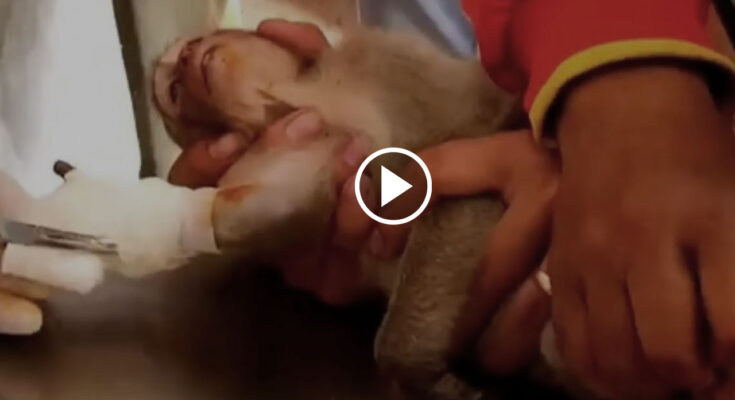If you are referring to the care or treatment of a juvenile monkey (often called a “juvie”), it is important to address specific needs for their age, health, and environment. Here’s an outline of how to approach the treatment and care of a juvenile monkey:
### 1. **Veterinary Care**
– Schedule regular check-ups with a veterinarian who specializes in primates.
– Address any health issues promptly and follow the veterinarian’s guidance on treatment.
### 2. **Nutrition**
– Provide a balanced diet suitable for juvenile monkeys, including:
– Fresh fruits and vegetables.
– High-quality primate pellets or a nutrient-rich formulated diet.
– Occasional protein sources, such as insects or cooked eggs, depending on the species.
– Ensure clean, fresh water is always available.
### 3. **Socialization**
– Juvenile monkeys are social animals; regular interaction with humans and/or other monkeys is crucial for their development.
– Engage in play and bonding activities that stimulate social behavior.
### 4. **Behavioral Training**
– Start training early using positive reinforcement techniques.
– Help establish basic commands and social norms to prevent behavioral issues later on.
### 5. **Enrichment**
– Provide toys, climbing structures, and interactive activities to keep your juvenile monkey physically and mentally stimulated.
– Rotate toys regularly to maintain interest.
### 6. **Hygiene and Grooming**
– Maintain a clean living environment to prevent health issues.
– Regularly groom the monkey, as they may need help with cleaning and caring for their fur.
### 7. **Observation**
– Monitor your monkey for any signs of illness or distress, including changes in appetite, behavior, or physical appearance.
– Consult with a veterinarian if you notice any unusual signs or symptoms.
### 8. **Lifespan and Long-Term Care**
– Understand that juvenile monkeys will grow into adults and need lifelong care. Prepare for their long-term needs, including social, dietary, and health requirements.
### Conclusion
Caring for a juvenile monkey requires a comprehensive approach that emphasizes health, nutrition, socialization, and environmental enrichment. Engaging with professionals and continuously educating yourself about primate care is key to providing a happy and healthy life for your monkey. If you are dealing with a specific medical issue, it’s crucial to seek veterinary assistance immediately.
